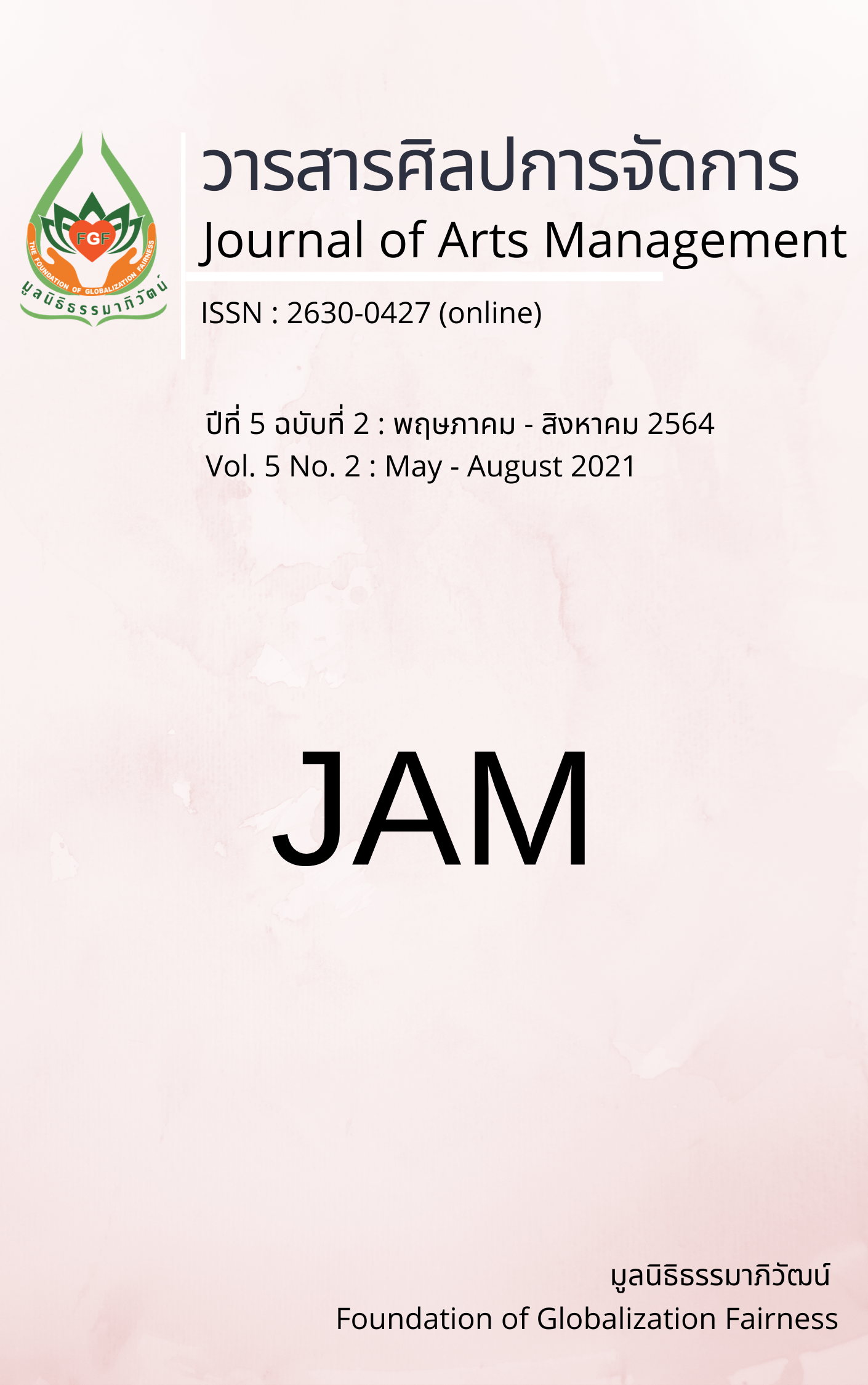Influence of Transformational Leadership and Organizational Culture Affecting Work Motivation of Generation Y Employees in Private Companies in Udon Thani
Main Article Content
Abstract
The objectives of this study were to 1) analyze transformational leadership, for example, charisma leadership, inspirational motivation, intellectual stimulation, individual consideration affecting work motivation of generation Y employees in private companies in Udon Tani and 2) analyze organizational culture, for example, adaptability culture, achievement culture, clan culture and bureaucratic culture affecting work motivation of generation Y employees in private companies in Udon Tani. Research methodology encompasses sampling survey. 400 sets of questionnaires were used to collect data and the data analysis techniques used in this study are descriptive statistics and inferential statistics such as Frequency, Percentage, Mean, Standard Deviation and Multiple Regression Analysis.
The results showed that 1) transformational leadership, intellectual stimulation and individual consideration have significant effect on work motivation of generation Y employees in private companies in Bangkok. 2) Adaptability culture, achievement culture, clan culture and bureaucratic culture have significant effect on work motivation of generation Y employees in private companies in Udon Tani.
Article Details
Views and opinions appearing in articles in the Journal of Arts of Management It is the responsibility of the author of the article. and does not constitute the view and responsibility of the editorial team I agree that the article is copyright of the Arts and Management Journal.
References
เเกตุศิรินทร์ เพ็ชรบูรณ์. (2556). การศึกษาลักษณะส่วนบุคคล ภาวะผู้นําการเปลี่ยนแปลง และวัฒนธรรมองค์การที่ส่งผลต่อประสิทธิผลในการปฏิบัติงานของพนักงานระดับปฏิบัติการ: กรณีศึกษาเขตสาทร กรุงเทพมหานคร(วิทยานิพนธ์ปริญญามหาบัณฑิต). มหาวิทยาลัย
กรุงเทพ.
โกวิท วงศ์สุรวัฒน์. (2556). เจนวาย Generation Y. สืบค้นจาก www: http://guru.sanook.com/8850/
ชีวภาส ทองปาน และ ถวัลย์ เนียมทรัพย์. (2555) ปัจจัยที่มีอิทธิพลต่อพฤติกรรมการเป็นสมาชิกที่ดีขององค์การของ พนักงานในบริษัทผลิตวัสดุก่อสร้างแห่งหนึ่ง. วารสารวิจัย มข. (บศ.), 12(2), 140-151.
ชูชัย สมิทธิไกร. (2553). พฤติกรรมผู้บริโภค. กรุงเทพฯ: สำนักพิมพ์แห่งจุฬาลงกรณ์มหาวิทยาลัย.
ธรรมรัตน์ อยู่พรต. (2556). ค่านิยมในการทำงานที่ส่งผลต่อพฤติกรรมการเป็นสมาชิกที่ดีขององค์กรของเจนเนอเรชั่นต่าง ๆ. วารสารบริหารธุรกิจ, 36(138), 40-62.
ผลิน ภู่จรูญ. (2548). การจัดการร่วมสมัย. กรุงเทพฯ: เอกพิมพ์ไท.
พรณิภา เติมศักดิ์. (2552). การพัฒนาภาวะผู้นําการเปลี่ยนแปลงของผู้บริหารสถานศึกษาสำนักงานเขตพื้นที่การศึกษานครราชสีมา เขต 1(วิทยานิพนธ์ปริญญามหาบัณฑิต). มหาวิทยาลัยมหาสารคาม.
รัชฏา อสิสนธิสกุล และ อ้อยอุมา รุ่งเรือง (2548). การสร้างความเข้าใจร่วมเกี่ยวกับเจเนอเรชั่นวาย (Generation Y) เพื่อการประยุกต์ใช้ในที่ทำงาน(สารนิพนธ์ปริญญามหาบัณฑิต). สถาบันบัณฑิตพัฒนบริหารศาสตร์.
อุทิส ศิริวรรณ. (2549). การจัดการการตลาด. (พิมพ์ครั้งที่ 3). กรุงเทพฯ: เพียร์สัน เอ็ดดูเคชั่นอินโด ไชน่า.
Bass, B. M. (1981). Stogdill’s Handbook of Leadership: A Survey of Theory and Research. New York: The Free Press.
Daft, R. L. (2002). The Leadership Experience. (2nd ed). Florida: Harcourt College.


